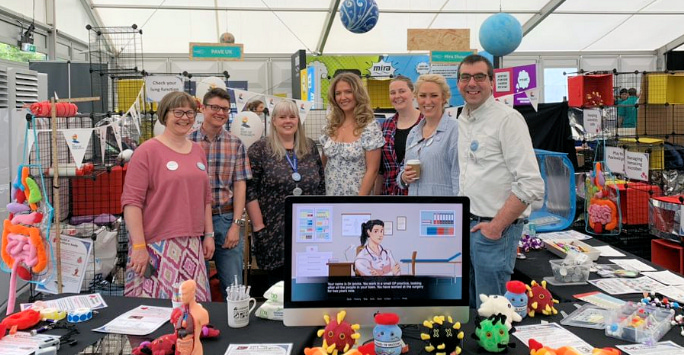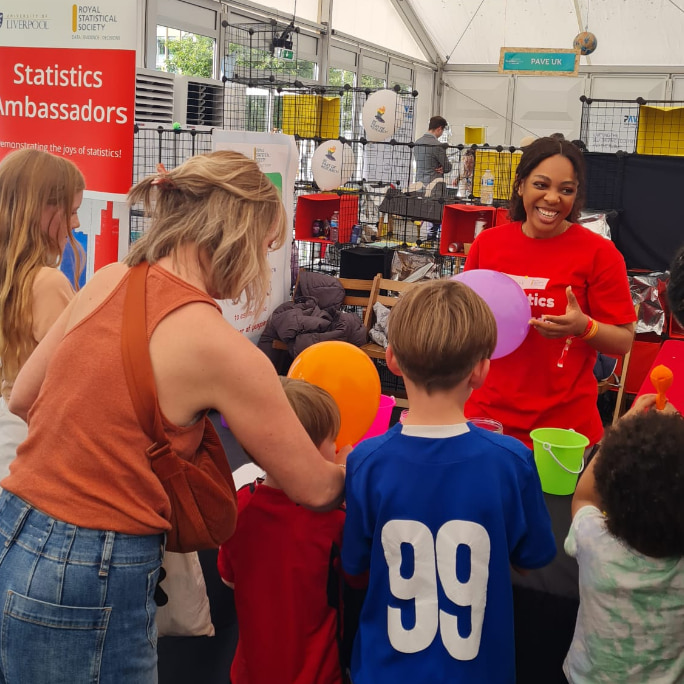
Staff and students from the Faculty of Health and Life Sciences recently travelled down to the Cheltenham Science Festival for its annual celebration of science. Melissa Whitehouse from our Public Engagement team tells us all about the trip.
Cheltenham Science Festival is a six-day event that aimed to inspire and featured interactive activities for all ages, overall attracting 68,000 festival goers. This included 8000 school children from across the Gloucestershire region, who visited the Interactive Zones, where they were encouraged to be curious, creative and dive into the science of the everyday.
A team from the Department of Pharmacology and Therapeutics shared how research can help make medicines better. Activities included an online game where you take on the role of a doctor and decide whether a drug is safe to prescribe. I’m sorry to say that I managed make my patient even more ill on my first few tries but luckily many of the children did a much better job than me! There was also a hands-on activity recreating working in a safe and sterile lab environment, as well as the opportunity to test your lung capacity with a peak flow test.
Bringing statistics to the Festival!

Researchers from the Department of Health Data Science presented four activities explaining mathematical-based statistical questions to children through games - making it fun and relating it to the real world. Their desired impact was to engage children and improve their perspective on mathematics-based subjects by offering fun, real-life examples.
Activities included using penguin poo to work out the population of a colony of penguins in Antartica and understanding probability by rolling a giant dice! Before rolling the dice, visitors would pick the number they thought it would land on. Most people would choose a 3 or 4, thinking that the dice would be more likely roll for a number ‘in the middle’. In reality however, the dice was no more likely roll any number – it was an equal split from 1 to 6! This fun and quick activity really brought the idea of probability to life for visitors young and old.
FameLab Final
Another highlight of the Festival was the UK final of FameLab, the world's biggest science communication competition.
North West winner Bethany Facer, a PhD student from the Institute of Systems, Molecular and Integrative Biology represented the University of Liverpool in the final. Bethany’s three minute talk explored the importance and intricacies of neuroimaging and the impact it could have on treating Parkinson's disease. We were so excited to cheer Beth on and see the brilliant talks from all the other finalists.
Cheltenham Science Festival is not only great fun but a fantastic opportunity to engage with a wide range of audiences. If you would be interested in running activities at next year’s festival or you’re interested in applying for next year’s FameLab competition, please contact the team at HLSEngagement@liverpool.ac.uk.